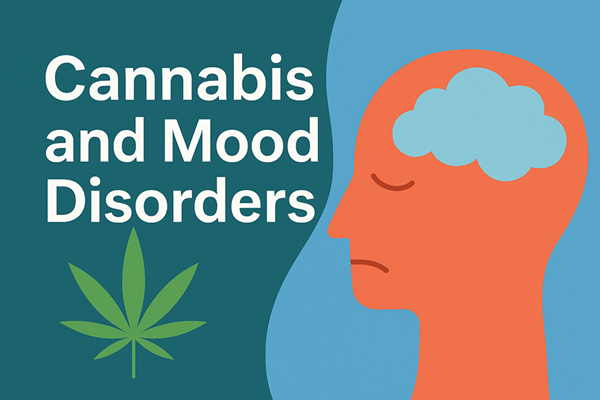Cannabis and Mood Disorders: What We Know So Far

Medical cannabis has become a topic of growing interest in the UK. While much of the conversation has focused on conditions like chronic pain, anxiety or ADHD, there is also increasing discussion about its potential role in mood disorders such as depression and bipolar disorder.
Mood disorders can seriously affect daily life, relationships and overall well-being. Standard treatments, including antidepressants and mood stabilisers, help many people, but not everyone responds fully. This dilemma has led some patients to ask whether medical cannabis might play a part in their care.
Cannabis and depression
Research into cannabis and depression is still developing. Some studies suggest that certain cannabinoids, such as CBD (cannabidiol), may have antidepressant-like effects by influencing serotonin levels in the brain. Serotonin is a chemical messenger that plays an important role in regulating mood.
For example, a 2018 review in Frontiers in Immunology found that CBD showed potential as an antidepressant in preclinical studies. Patients themselves often report that cannabis can temporarily lift mood and reduce feelings of low motivation.
However, there are also risks. High doses of THC (tetrahydrocannabinol), the psychoactive compound in cannabis, may worsen anxiety or lead to feelings of paranoia in some people. A 2020 review in The Lancet Psychiatry noted that heavy cannabis use, particularly in young people, may increase the risk of developing depression in the long term.
The key takeaway is that while CBD may be helpful, THC-rich cannabis is a more complex story that should be approached with caution in patients with depression.
Cannabis and bipolar disorder
Bipolar disorder is characterised by shifts between depressive and manic or hypomanic episodes. It is a serious condition that requires medical supervision and treatment, often with mood stabilisers or antipsychotic medication.
The evidence around cannabis and bipolar disorder is mixed. Some patients report that cannabis helps reduce agitation and improve sleep during depressive phases. However, clinical studies suggest that cannabis use can also increase the risk of triggering manic episodes in certain individuals.
A study published in Psychological Medicine in 2015 found that cannabis use in people with bipolar disorder was linked to more frequent and severe manic symptoms. At the same time, a smaller number of patients report benefits from mood stabilisation.
Because of this conflicting evidence, most medical guidelines urge caution. Cannabis is not recommended as a stand-alone treatment for bipolar disorder, and any use should be carefully monitored by a doctor.
What does the NHS say?
At present, the NHS does not prescribe cannabis for depression or bipolar disorder. Prescriptions in the UK are limited to specific conditions, such as rare forms of epilepsy, spasticity in multiple sclerosis and chemotherapy-related nausea.
Private clinics are able to prescribe cannabis-based medicines under certain circumstances, but for mood disorders the evidence base is still considered too limited for widespread use.
Points to consider:
- CBD may show promise for reducing symptoms of depression, but more human trials are needed.
- THC can have mixed effects and may worsen symptoms in some patients.
- Bipolar disorder patients need extra caution, as cannabis could increase the risk of mania.
- Medical supervision is essential for assessing safety, interactions with other medicines, and the best treatment plan.
Final thoughts
Cannabis and cannabinoids are being studied more closely for their role in mental health. While there is some early evidence that CBD might support people with depression, the evidence around THC and bipolar disorder is more concerning.
For now, cannabis should not replace established treatments for mood disorders. In the future, it could potentially complement traditional therapies, but further research is necessary to establish its safety and reliability.
Anyone considering a medical cannabis prescription for mood disorders should speak with a qualified healthcare professional who can guide them through the evidence and ensure safe use.


